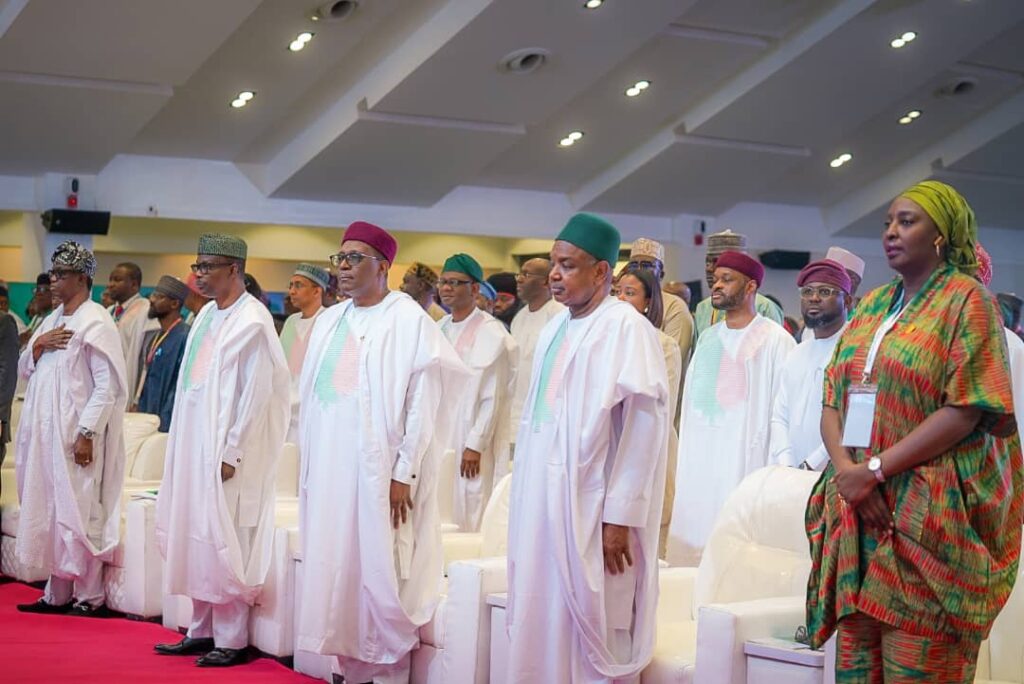The Federal Government has unveiled plans to raise ₦150 billion over the next two years to fund vaccine procurement and epidemic preparedness, marking one of the boldest health financing initiatives under President Bola Ahmed Tinubu’s Renewed Hope Agenda.
The Coordinating Minister of the Economy and Minister of Finance, Wale Edun, disclosed this at the 2025 Joint Annual Health Sector Review (JAR) held in Abuja, with the theme “All Hands, One Mission.”
He said the initiative aligns with the administration’s broader economic reform agenda aimed at stabilizing the economy, expanding fiscal space, and channeling more resources to critical social sectors such as health and education.
Edun explained that the government’s coordinated reform drive, linking fiscal expansion, health system renewal, and improved governance underscores President Tinubu’s determination to translate economic stabilization into measurable social impact.
“The turnaround in the economy has begun. Distortions are being removed, the economy is stabilizing, and social sectors like health are benefiting significantly,” Edun stated.
The Minister further revealed that the federal health budget has risen by nearly 60 percent, while the Basic Health Care Provision Fund (BHCPF) will expand from ₦131.5 billion in 2024 to ₦299 billion by 2026.
Also speaking, the Minister of Budget and National Planning, Senator Atiku Bagudu, identified Nigeria’s historically low revenue-to-GDP ratio, below 8 percent since 2007 as a major constraint to national development.
According to him, President Tinubu has directed economic managers to raise the ratio to 18 percent by 2026 through comprehensive fiscal and tax reforms.
“We are mobilizing revenue and investing strategically to fund national priorities, including health,” Bagudu said.
He also disclosed that under a World Bank-supported initiative, all 8,809 wards across Nigeria’s 774 local governments are being integrated into a unified planning framework to align local, state, and national development priorities.
The Nigeria Governors’ Forum (NGF), through its Chairman and Kwara State Governor, AbdulRahman AbdulRazaq, expressed support for ongoing health reforms and called for stronger collaboration between the federal and state governments.
He praised the disbursement of ₦32.9 billion under the BHCPF and the introduction of a sector-wide approach, describing both as “game-changers” for primary healthcare delivery.
“For the first time, states are clear on the support reaching them from the federal government. This clarity will strengthen planning and measurable results,” AbdulRazaq said.
Commending the Federal Ministry of Health for promoting transparency and accountability across all tiers of government, the governor stressed that universal health coverage (UHC) is not abstract but central to improving lives.
“Achieving UHC requires all hands — federal, state, and local — working together in one mission,” he added.
The Coordinating Minister of Health and Social Welfare, Prof. Muhammad Ali Pate, highlighted measurable progress in key health indicators, including maternal and newborn survival rates and vaccination coverage.
According to him, maternal deaths have dropped by 17 percent, newborn deaths by 12 percent, and more than 15,000 new health workers have been recruited nationwide.
“All 36 states and the FCT now have operational health plans aligned with national priorities. Citizen trust is rising, with 55 percent of Nigerians expressing confidence in the reforms,” Pate noted.
He added that the government is advancing plans to strengthen local vaccine production, expand health insurance coverage, and enhance transparency through digital systems and health-focused taxes, including the levy on sugary drinks.















